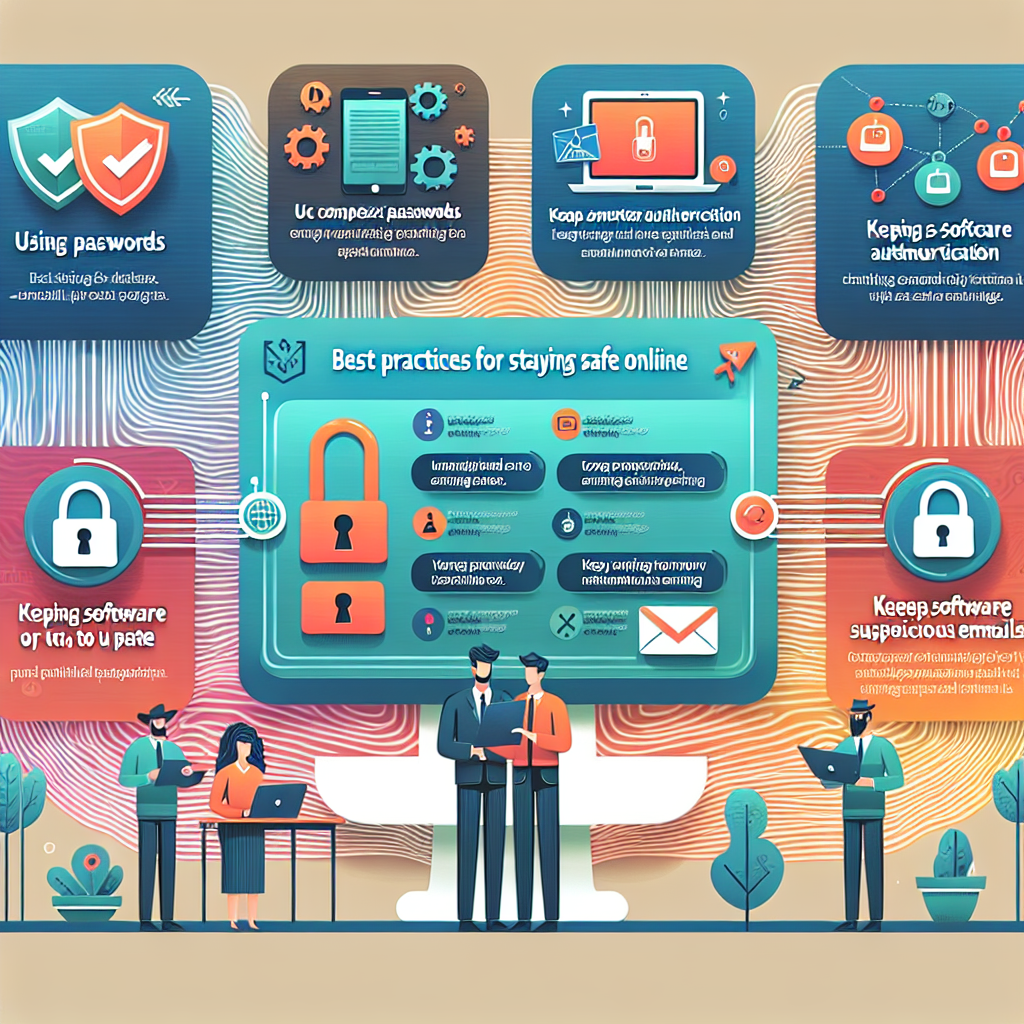In the digitally-driven era that we live in today, cybersecurity has become a topic of utmost importance. As the internet has grown, so too have the risks associated with it. The dangers of cyber threats are real and can have severe implications on our personal and professional lives. In this article, we delve into the best practices for staying safe online, as recommended by cybersecurity experts.
Understanding the Basics of Cybersecurity
Effective cybersecurity is a combination of protection, detection, and incident response. Your first line of defense is to ensure that your systems are well-protected. This could mean installing firewalls, using secure networks, and employing strong, unique passwords. In addition to this, you should also have systems in place to detect when an attack is happening. This allows you to respond swiftly and minimize potential damage.
Furthermore, understanding the basics of cybersecurity also involves being aware of the different types of online threats that exist. These range from malware and viruses to phishing scams and ransomware attacks. The National Initiative for Cybersecurity Careers and Studies provides comprehensive resources on these threats.
Finally, it is crucial to keep abreast of the latest cybersecurity trends and threats. The internet is constantly evolving, and so too are the tactics employed by cybercriminals. Regularly updating your knowledge will allow you to better protect yourself and stay safe online.
Essential Tips for Securing Your Online Presence
Securing your online presence begins with strong, unique passwords. This may sound simple, but many people use easily guessable passwords, or use the same password across multiple platforms. This makes it easier for hackers to gain access to your accounts. A password manager can help you generate and store strong passwords.
Next, be mindful of the information you share online. Personal information can be used to steal your identity and/or gain unauthorized access to your accounts. Therefore, it’s advisable to limit the amount of personal information you post on social media, and to adjust your privacy settings accordingly.
Finally, always ensure that your devices and applications are up-to-date. Software developers regularly release updates to fix vulnerabilities that could be exploited by hackers. Failing to install these updates can leave your devices and accounts susceptible to attacks.
Expert Advice on Advanced Cybersecurity Measures
Beyond the basics, cybersecurity experts recommend taking further measures to stay safe online. One such measure is two-factor authentication (2FA). 2FA provides an extra layer of security by requiring you to provide two different verification methods.
Another advanced measure is a virtual private network (VPN). A VPN encrypts your internet connection, making it harder for hackers to intercept and view your online activity. This is especially useful when using public Wi-Fi networks, which are often unsecure.
Moreover, experts recommend regularly backing up your data. In the event that you do fall victim to a cyber attack, having a backup of your data can prevent you from losing important files. The Cybersecurity and Infrastructure Security Agency recommends a 3-2-1 backup strategy: three copies of your data, two on different storage types, and one off-site.
Summary of Key Takeaways on Staying Safe Online
In summary, staying safe online involves a combination of basic and advanced cybersecurity measures. Understanding the types of threats that exist, the importance of strong unique passwords, cautious sharing of personal information, regular updates of your devices and applications, two-factor authentication, using VPN, and regular backup of your data are all essential elements of a holistic approach to cybersecurity.
While the internet can be a daunting place, by following these best practices as recommended by cybersecurity experts, you can significantly reduce your risk of falling victim to cyber threats. Remember, cybersecurity is not a one-time event, but a continuous process of protection, detection, and response.
In conclusion, cybersecurity is a field that requires continuous vigilance and updating of knowledge. It is our responsibility to protect our personal and professional lives from the threats that linger online. Implementing the cybersecurity best practices advised by experts will not only safeguard us from potential cyber attacks, but also facilitate a safer and more secure online experience for all. The key takeaway here is simple: when it comes to cybersecurity, we are all in it together. Let’s stay safe online.











